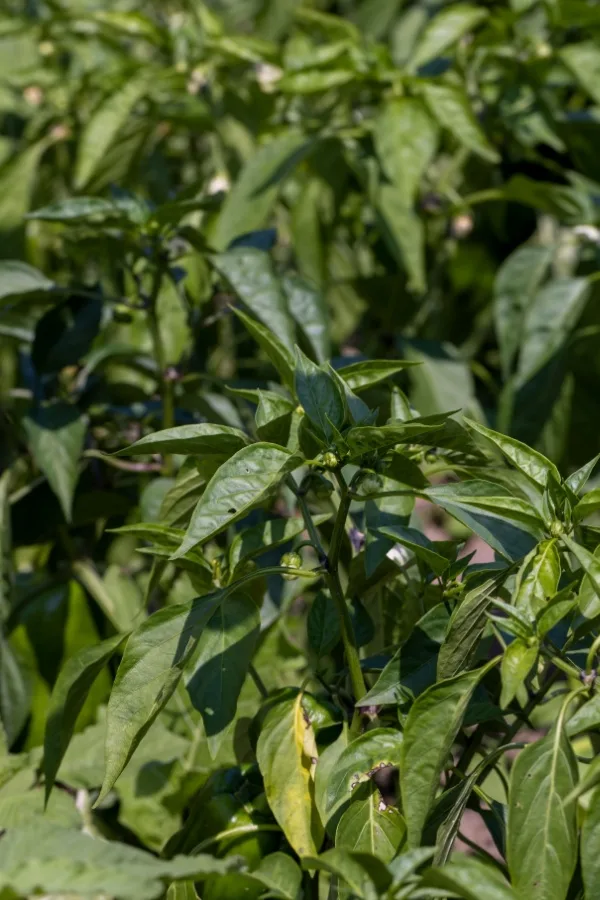Top-Rated Fertilizers for Peppers: Improve Your Harvest Quality
Top-Rated Fertilizers for Peppers: Improve Your Harvest Quality
Blog Article
Organic Vs. Synthetic Fertilizers: Which Is Best for Supporting Healthy And Balanced Pepper Plants?
In the world of supporting healthy pepper plants, the option between synthetic and natural plant foods stands as a crucial choice with far-ranging ramifications. While both choices objective to provide crucial nutrients to sustain plant development, the subtleties of their effect on the dirt, plant wellness, and the environment stimulate a debate that mirrors throughout the horticulture neighborhood. Understanding the distinctive benefits and possible risks of each fertilizer type is vital for pepper cultivators looking for to enhance their returns while keeping a sustainable and eco-conscious technique.
Benefits of Organic Plant Foods
Organic plant foods offer a lasting and environmentally-friendly strategy to beneficial pepper plants, supplying important nutrients without using artificial chemicals. These all-natural plant foods are obtained from organic resources such as garden compost, manure, bone dish, and seaweed, advertising soil health and wellness and biodiversity. Unlike artificial fertilizers, organic options release nutrients gradually, guaranteeing a well balanced and steady supply for pepper plants to grow.
One substantial benefit of natural plant foods is their ability to boost dirt structure and water retention. By enhancing dirt health, organic fertilizers promote helpful microbial activity, which helps in nutrient uptake by pepper plants. In addition, natural plant foods lower the risk of chemical run-off, protecting water sources from air pollution and protecting the environment.
Furthermore, natural fertilizers add to lasting dirt fertility by advertising the development of helpful dirt microorganisms. These organisms assist damage down natural issue, launching nutrients in a kind that is quickly available to pepper plants. best fertilizers for peppers. By promoting a healthy soil community, organic plant foods sustain lasting pepper farming techniques that profit both plants and the environment
Drawbacks of Synthetic Fertilizers
Synthetic fertilizers, unlike their natural equivalents, posture various disadvantages when utilized to nourish pepper plants, impacting both plant health and environmental sustainability. One major disadvantage of synthetic plant foods is their propensity to seep nutrients from the dirt promptly. This quick leaching can bring about nutrient imbalances in the soil, causing plants to experience deficiencies or toxicities. Furthermore, synthetic fertilizers can hurt beneficial soil organisms, such as earthworms and beneficial germs, interrupting the soil environment's equilibrium.
Additionally, the overuse of synthetic fertilizers can add to water air pollution. Excess plant foods not taken in by plants can get rid of into water bodies, bring about eutrophication, where algae blossoms deplete oxygen levels in the water, damaging water life. Synthetic plant foods are commonly acquired from non-renewable resources, such as fossil fuels, adding to carbon discharges and ecological deterioration during their production.
Nutrient Absorption Contrast
When contrasting artificial and organic plant foods in terms of nutrient next page absorption, organic fertilizers look here have the advantage of supplying an extra balanced and slow-release resource of nutrients. Organic plant foods include a variety of macro and micronutrients that are not only advantageous for the plants yet also advertise healthy and balanced dirt microbial task, which aids in nutrient uptake.
Moreover, organic fertilizers improve dirt structure and water retention capability, permitting pepper plants to access nutrients a lot more successfully. This improved soil top quality facilitates root advancement, making it possible for better nutrient absorption. Synthetic plant foods, although originally boosting plant growth because of their high nutrient focus, might prevent lasting nutrient absorption by derogatory dirt health and wellness gradually.
Ecological Effect Factors To Consider

On the various other hand, synthetic plant foods, although usually more quickly offered and concentrated to plants, can have destructive impacts on the environment otherwise applied properly (best fertilizers for peppers). Their manufacturing requires high power inputs, causing greenhouse gas emissions and adding to environment change. In addition, the overflow of excess synthetic plant foods can contaminate water resources, resulting in eutrophication and harming marine environments.
Best Plant Food Practices for Peppers
When feeding helpful site pepper plants, optimizing nutrient uptake and lessening ecological influence are key considerations. To accomplish this, it is necessary to follow finest fertilizer techniques customized to the specific needs of pepper plants. One important technique is to execute a dirt test before applying any fertilizers. This test can identify the pH degree of the dirt and recognize any kind of nutrient deficiencies, directing you in choosing the most appropriate plant food solution.
One more crucial method is to feed pepper plants at the ideal time. Commonly, peppers gain from obtaining plant food at planting and afterwards again when they start to flower. Over-fertilizing can cause vitamins and mineral inequalities and harm the plants, so it is vital to comply with suggested application prices.
Furthermore, selecting a balanced fertilizer with an NPK ratio that matches pepper plants' needs is basic. Organic fertilizers, such as compost or manure, can be exceptional options as they launch nutrients slowly and improve soil structure over time. Nonetheless, artificial fertilizers can provide a quick nutrient increase when required. Ultimately, incorporating natural and artificial fertilizers carefully can help nurture healthy pepper plants while minimizing ecological effect.
Final Thought
:strip_icc()/BHG-Growing-Peppers-Indoors-EzgaEnB7KML9Ym_plkvuxK-9398f1341d86483083862533ae7622db.jpg)
Organic fertilizers supply a sustainable and environmentally-friendly method to beneficial pepper plants, providing necessary nutrients without the use of synthetic chemicals. Unlike artificial fertilizers, natural alternatives release nutrients gradually, ensuring a consistent and well balanced supply for pepper plants to thrive.
Synthetic fertilizers, in contrast to their organic counterparts, present numerous drawbacks when utilized to nurture pepper plants, influencing both plant health and environmental sustainability. When comparing synthetic and natural plant foods in terms of nutrient absorption, natural plant foods have the advantage of providing a much more balanced and slow-release resource of nutrients.Moreover, natural plant foods enhance soil structure and water retention capacity, allowing pepper plants to gain access to nutrients a lot more successfully.
Report this page